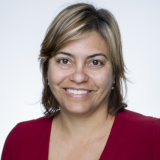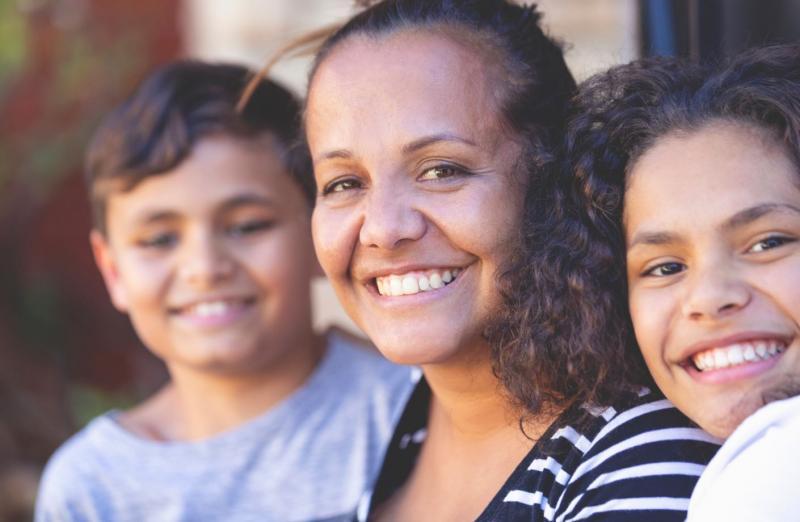'Capacity development is something I’m really passionate about and there is definitely a need for it' - Dr Odette Pearson.
Dr Odette Pearson grew up in North Queensland and is a proud Kuku Yalanji/Torres Strait Islander woman. Dr Odette Pearson graduated with a Bachelor of Indigenous Primary Health Care from the University of Queensland. Following a couple of years of research work, Dr Pearson then went on to work in health policy and primary health care in the Torres Strait and Northern Peninsula Area government health services. It was this experience that sparked her interest in primary health care, prevention and management of type 2 diabetes and the impact of social determinants on people’s lives.
'I moved from research to a career in policy and service provision because I was trying to figure out my role in research as Torres Strait Islander woman, the role of the community in research and how collectively we were benefiting from research', Dr Pearson said.
Before embarking on a PhD, Dr Pearson came to realise the research environment was changing and could see tangible outcomes, including reduced preventable diabetes-related hospitalisations and greater involvement of Aboriginal and Torres Strait Islander people in research and the community.
'I was excited with the thought that research can make a positive difference in our lives and if I could be a part of that I’d be really happy to contribute through my research', she said.
In 2007, Dr Pearson returned to a career in research through a NHMRC Capacity Building Grant, which focussed on building a cohort of Indigenous research leaders in community health development.
Dr Pearson’s current research seeks to understand the underlying drivers of health and social inequalities by focusing on community-level health outcomes and the interpretation of these outcomes from an Aboriginal and Torres Strait Islander perspective.
‘Fundamental to this work is Aboriginal and Torres Strait Islander peoples’ control over their own data that facilitates use of data to achieve greater outcomes and benefits for the Indigenous population,’ said Dr Pearson.
Dr Pearson is part of the Wardliparingga Aboriginal Health Equity team at the South Australian Health and Medical Research Institute. The objective of this team is Indigenous Health Equity through improving clinical care and pathways, health services and social interventions, policy development and social determinants of health interventions. Through an NHMRC Project Grant, the team hopes to generate evidence to enable delivery of culturally meaningful health and social services to Aboriginal clients.
‘Social and cultural determinants focus on the political, economic, social and cultural conditions of the society we live in. Groups within the population have different exposures to and experiences with these conditions.
'I’m really interested in how we influence the social determinants of health in a way that achieves positive outcomes and that are sustainable,'
‘As we have known for a long time now, the research done by the team is showing real need for this and people are enrolling in the program,’
‘There have been outcomes for people that really are immediate and tangible, as well as longer term and at times more complex responses needed,’ she said.
'I’d like to see the disparities close and opportunities to become equal for all Aboriginal and Torres Strait Islander people and to see the next generation of researchers come through.'
‘For this to happen, we need better understood and identified pathways for Aboriginal and Torres Strait Islander people in research and work in the space of bridging the gap between PhD training and an established research career. When we do that we actually have a voice at the table to provide leadership in research,’ Dr Pearson added.

